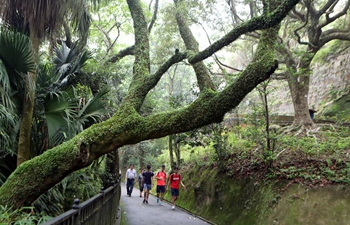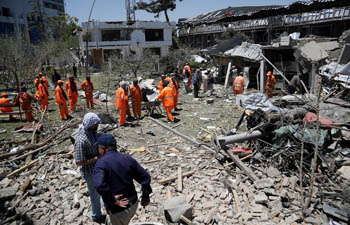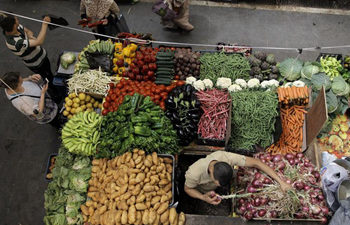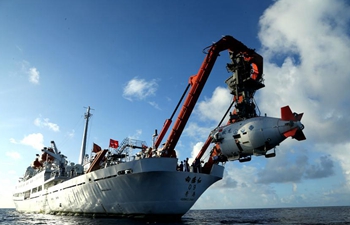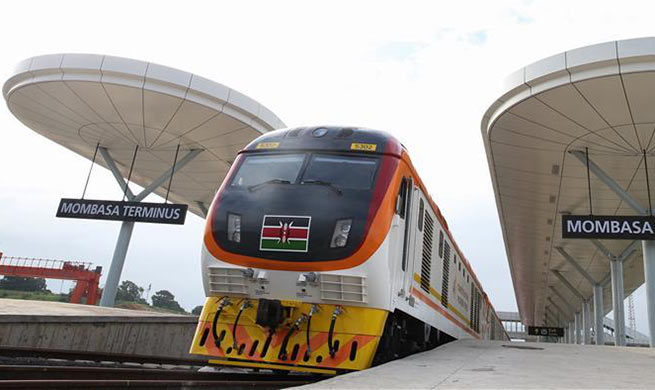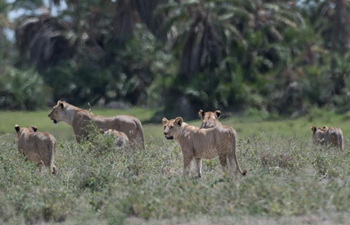CAPE TOWN, June 1 (Xinhua) -- Strict water restrictions came into effect on Thursday in the City of Cape Town, South Africa, as a water crisis worsened.
In a desperate bid to deal with the crisis, city authorities urged Cape Town residents to store emergency water in case water supply is suspended.
The city, which is experiencing a severe drought that hasn't been seen in a century, limits residents to 100 liters of water per person per day in what is known as level 4 water restrictions.
As water saving measures, residents are also urged to shower not longer than two minutes and flush the toilets only if "absolutely" necessary or not more than three to five times a day, and use greywater wherever possible.
The city has already banned all use of municipal water for outside and non-essential use.
With a population of almost 4 million, the city currently uses about 666 million litres of water a day.
As dam levels continue to fall, the city is considering limiting daily water use to 500 million litres, City Mayor Patricia de Lille told reporters.
If the worst comes to the worst, the city will bring in water by trucks, the mayor said.
The city is also working on a modular desalination plant and trying to turn it into operation as soon as possible," De Lille said.
The best way for Capetonians is to save water, she said.
"The days of plentiful water supply in Cape Town are over," said De Lille.
Last month, Cape Town, along with the Western Cape Province, was declared a disaster area.
Currently the Theewaterskloof dam, the largest of the water storage dams in the Western Cape, has dropped to 13 percent of its capacity. Other dams are also running dry.
Overall storage levels are now at about 20 percent and continues to shrink.
With the last 10 percent of a dam's water mostly not being usable, dam levels are effectively at about 10 percent.
Farmers have faced crippling water restrictions in a drastic attempt to conserve more water.
When irrigation water is restricted to under 50 percent of what fruit bearing trees need to produce profitable fruit, it becomes impossible to harvest these fruits because of the progressive impact it has on the trees.
Because of this, farmers in the province have been suffering big losses during the harvest season of 2017. For instance, table grape farmers in the Olifantsriver Valley have suffered losses of over 100 million rand (about 7.7 million U.S. dollars) as a result of the drought.
"We are at the moment on a level 4 water restriction, meaning in normal life we are not allowed to water our gardens, or wash our vehicles," Daniel Swanepoel, Quality Controller at Global Pacific Export Company, told Xinhua.
The drought is so severe that less than 20 percent of water is left in the dams and when it drops below 10 percent, the water is not useable for normal consumption, Swanepoel said.
Pointing to the Theewaterskloof dam, he said, the level of the dam is so low that people can walk where there was normally water.
"So it's quite a big crisis here in the Western Cape," he added.





